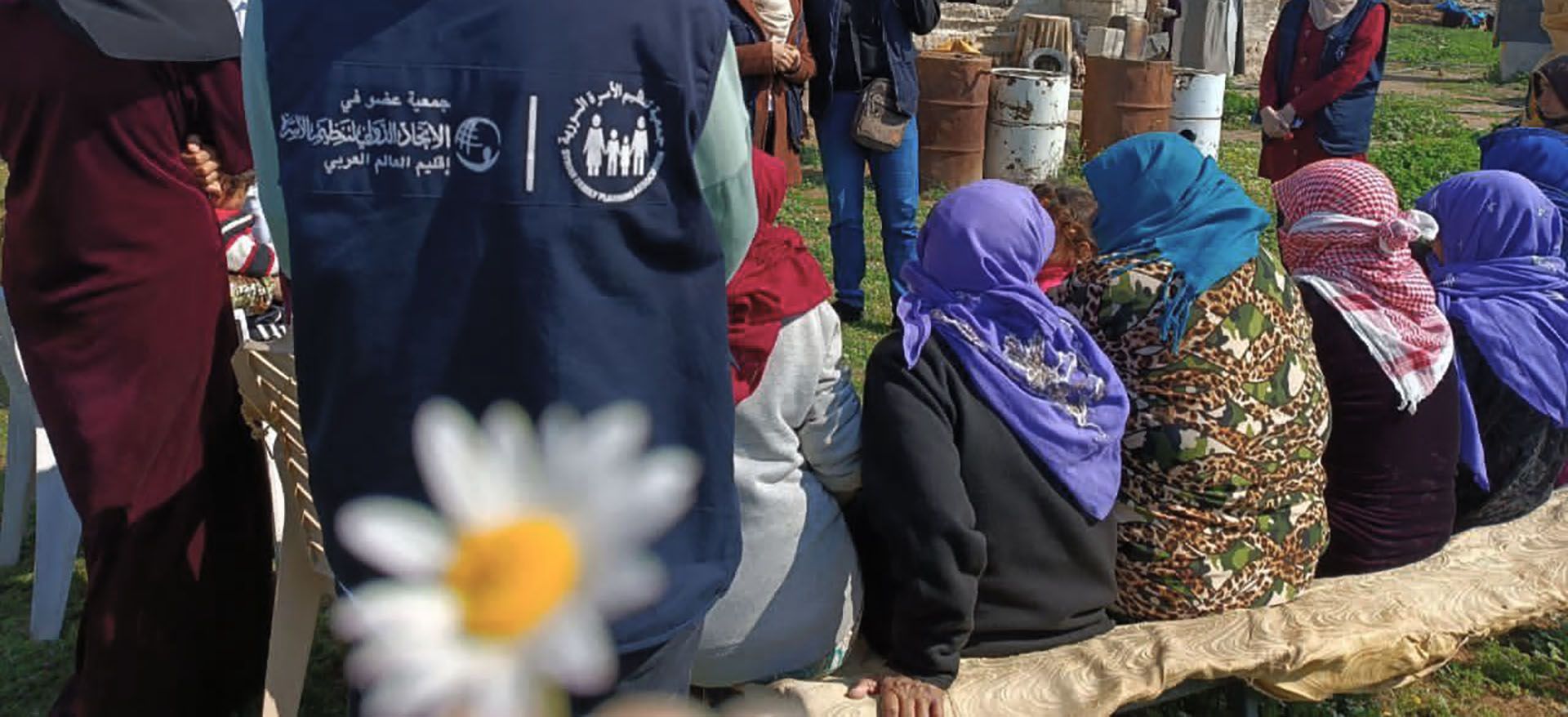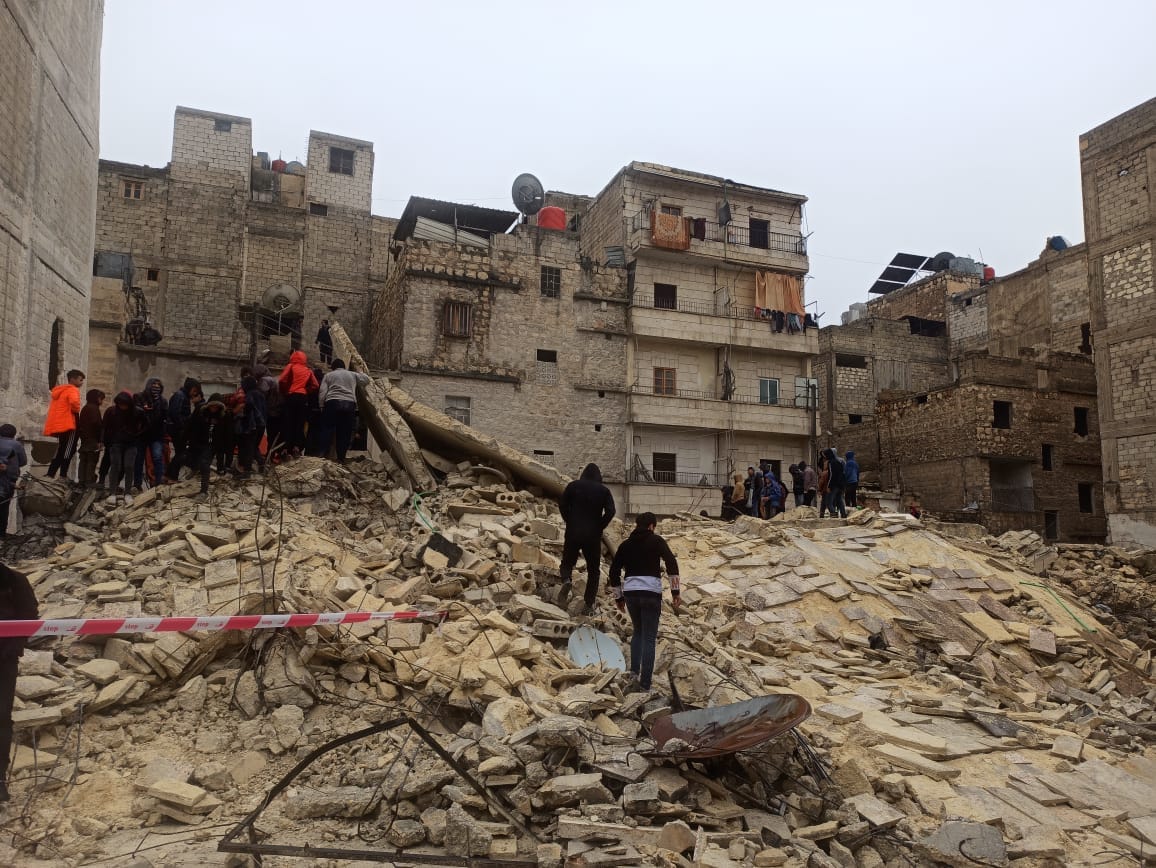Latest press releases
A selection of stories from across the Federation

Netherlands
Rutgers triumphs in landmark court case against lies, online hate and disinformation
Rutgers, the Netherlands’ leading sexual and reproductive health expert and IPPF’s Member Association, has today secured a landmark legal win against an ultra-conservative group.
For media enquiries


| 17 April 2025
Rutgers triumphs in landmark court case against lies, online hate and disinformation
17 April 2025 - Rutgers, the Netherlands’ leading sexual and reproductive health expert and IPPF’s Member Association, has today secured a landmark legal win against an ultra-conservative group notorious for fuelling online hate and spreading disinformation. This ruling is a crucial step forward in protecting young people’s health, safety and well-being from harmful narratives designed to undermine their rights. Rutgers took legal action against Civitas Christiana, due to the persistent lies and slander that Civitas continued to spread about Rutgers and the Spring Fever Week. This is an annual campaign in the Netherlands, held in Spring, focused on resilience, heathy relationships and sexual health. The court ruled entirely in favour of Rutgers; all statements must be rectified. The statements by Civitas - made through their social media channels, mainstream media and direct outreach efforts - were not only found to be false, but also harmful and unlawful. This important decision affirms support for parents, teachers, and schools, all who are committed to ensuring children to grow up healthy, safe and happy and protected from disinformation and misinformation. Schools participate voluntarily in Spring Fever Week by providing structured, age-appropriate lessons on these topics to their primary school students. Rutgers took these legal steps to support parents, teachers, and schools, and to combat misleading and vexatious misinformation, as our work is unapologetically about child safety and protection. It’s about giving young people agency and keeping them safe from perpetrators. Young people without information and without bodily autonomy are unsafe. This case was about standing with and for the young people, parents, caregivers, educators and communities who are targeted and harmed by these toxic campaigns run by ultra-conservative groups. The court’s ruling sends a clear message: there is no place for hate and misinformation in public discourse, especially when it endangers the lives, safety and health of young people. “This legal case was not about a difference of opinion on education,” says Rutgers deputy director Luc Lauwers, “but about the spreading of fake news that puts children in danger rather than protecting them. Everyone has the right to their own values, beliefs, opinions, religious convictions, and way of life - including in matters of education and parenting. That is a fundamental pillar of our democratic legal system in the Netherlands. However, the freedom of expression and freedom of religion that Civitas Christiana appeals to are not without limits.” Victories like this matter deeply. At a time when sexuality education is under coordinated attack by alt-right movements globally, this victory speaks volumes about the power of civil society organisations to stand firm, fight back, and defend truth, science and young people’s rights. Anti-rights groups work to erode trust, sow fear and promote regressive narratives that do real harm - particularly to young people. Staying silent is not an option. Every time we speak up, seek justice and share the truth, we help build a society where young people are safe, informed and healthy. This ruling is a meaningful step, but our shared global responsibility continues. For media inquiries, please contact: [email protected] or [email protected] the International Planned Parenthood Federation IPPF is a global healthcare provider and a leading advocate of sexual and reproductive health and rights (SRHR) for all. Led by a courageous and determined group of women, IPPF was founded in 1952 at the Third International Planned Parenthood Conference. Today, we are a movement of 158 Member Associations and Collaborative Partners with a presence in over 153 countries. Our work is wide-ranging, including comprehensive sex education, provision of contraceptive, safe abortion, and maternal care and responding to humanitarian crises. We pride ourselves on being local through our members and global through our network. At the heart of our mission is the provision of – and advocacy in support of – integrated healthcare to anyone who needs it regardless of race, gender, sex, income, and crucially no matter how remote. About RutgersRutgers is the Dutch centre of knowledge and expertise on sexual health, safety and well-being for young people. We work to improve the sexual and reproductive health and rights of all (young) people in the Netherlands and in more than 29 countries around the world. In partnership with other organisations we advocate for sexual and reproductive health and rights, promote public support and do (scientific) research.Together with partners, we work within countries and internationally to improve sexual rights, access to sexuality education and information, access to contraception and safe abortion services and to prevent sexual and gender-based violence.

| 11 December 2024
We Must Protect Critical Sexual and Reproductive Health and Rights During Syria's Transition
IPPF remains steadfast in its commitment to supporting its Member Association, the Syrian Family Planning Association (SFPA), in providing essential SRHR services for all. Within the uncertainty and instability, we continue to work together with SFPA to empower communities, protect the rights of women and adolescents, and address the urgent needs of marginalized populations, particularly in the face of increased vulnerability. Our collective mission stands firm: we are committed to ensuring that dignity, health, and choice are accessible to all, regardless of political or social challenges. Even in these uncertain times, we believe that SRHR services must continue - because the need for family planning, maternal healthcare, and gender-based violence (GBV) support does not diminish, even in the midst of conflict. Syria is enduring a difficult period of transition, but sexual and reproductive health cannot be sidelined. The health and well-being of Syria’s most vulnerable populations, especially women and youth, remain a top priority. The work of SFPA is more essential than ever, as it continues to provide vital services such as family planning, postnatal care, and GBV screening. At Al-Hasakah, SFPA is on the frontlines, directly supporting over 5,000 people, the majority of whom are women in urgent need of reproductive healthcare services. These women face an increased risk of complications due to the lack of access to safe and comprehensive health services, but SFPA is committed to meeting their needs. From providing postnatal care to offering family planning options and GBV screenings, SFPA is ensuring that women in these vulnerable circumstances are not forgotten. SFPA’s clinics, such as the one in southern Daraa and the besieged Al-Waer in Homs, have become lifelines, serving as a beacon of hope for those in need. They provide up to 70 beneficiaries a day with crucial services, including health counselling and early marriage awareness. SFPA has faced significant challenges, including the seizing of vehicles and temporary clinic closures in the suburbs of Homs. Yet SFPA's perseverance in delivering SRHR services remains an essential lifeline for the people of Syria. We will continue to stand alongside SFPA in their tireless efforts to safeguard sexual and reproductive health rights, ensuring that every woman, adolescent, and marginalized person has access to the care they deserve. Together, we stand for dignity, health, and choice, even in the face of uncertainty. The challenges are great, but the importance of maintaining SRHR services is immeasurable. Through unwavering dedication, we can support those in need and contribute to a future where everyone has access to the care and rights they deserve. Contact: +44 7918 845944 Image credit: SFPA/Wasim Kashlan

| 09 February 2023
IPPF responds with SRH care to survivors of the earthquake in Syria
On Monday 6th February, catastrophic earthquakes hit Türkiye and Syria. Within hours, our local member association, the Syrian Family Planning Association (SFPA), was among the first responders assisting and evacuating people to safe shelter and accommodation in Syria. Dr. Lama Mouakea, Executive Director, Syrian Family Planning Association said: “In the aftermath of Monday’s earthquake, at least two hospitals have collapsed, three of our clinics have been damaged, and many health services have been disrupted. This will have an immediate, and dire, impact on women and girls. The catastrophic earthquake combined with the harsh winter makes our response even more critical. We have already sent mobile clinics to the areas affected to provide immediate healthcare.” Dr. Mouakea added: “Women and girls who are being moved into shelters in several areas, such as Aleppo and Idlib, may be subjected to violence or sexual abuse, so the medical and psycho-social service needs are great. We know of one devastating case of a mother giving birth to a baby while buried beneath rubble, who later sadly passed away. So getting pregnant women to safe spaces to deliver their babies is now essential. Our staff visit these areas continuously every week, so are already familiar with the communities and areas that are hardest hit. SFPA has been here before the earthquake providing humanitarian aid and will continue to serve these communities as they recover from this latest disaster.” Whilst also responding to other immediate needs, SFPA is ensuring sexual and reproductive healthcare is on the agenda as a critical component of the response, especially for women, girls and marginalized communities. Three in five preventable maternal deaths occur during natural disasters, and one in five women is likely to be pregnant during a crisis. Without access to reproductive healthcare, women and girls will suffer severe consequences, including miscarriage, premature labour, complications from unassisted deliveries and increased exposure to sexual and domestic violence, sexually transmitted infections, unintended pregnancy, unsafe abortion and even death. Julie Taft, Humanitarian Director, International Planned Parenthood Federation said: “IPPF is deeply saddened to hear of the news of the devastating earthquake in Türkiye and Syria. Our deepest condolences go out to the families who lost loved ones and whose homes were destroyed. Our member association in Syria has already started responding with mobile health clinics, and we stand ready to support the ongoing response efforts of our local partners in their delivery of vital, and lifesaving, sexual and reproductive healthcare to women, girls, and marginalized populations.” Twelve years of war and sanctions have left Syria’s infrastructure, including healthcare systems, battered. A crippling economic crisis has also driven humanitarian needs to record levels. SFPA has been responding throughout these interlinked crises ensuring continued sexual and reproductive healthcare services through their mobile and static clinics. Dr Alvaro Bermejo, Director-General of IPPF said: “It is amongst one of the most devastating natural disasters we have seen in recent times. The focus of all actors must be squarely on the needs of the people, particularly women and girls and those who are more vulnerable. It is not time to play geopolitics when women are giving birth amidst the devastation. It is time to focus on getting aid and support to where it is needed, now. It is not only the rubble that must be removed, but also any obstacle put in place by those in positions of power, locally, nationally or internationally.”
















